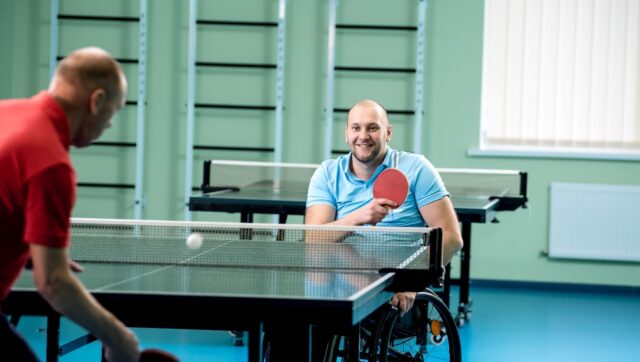RESOURCES
Practical Toolkits and Checklists for Clubs and Coaches
Clubs do not have to start from scratch. There are many toolkits, checklists, and templates that are available to guide inclusive practices.
These resources offer step-by-step advice and cover everything from coaching tips to club policies.
Here are some Australian-developed tools:
- Down Syndrome Australia – Community & Sporting Toolkit: A comprehensive set of resources co-designed with people with Down syndrome to help community groups and sports clubs be inclusive. It includes an “About Me” profile template that families can fill out to share a participant’s strengths, communication style, triggers, and support needs with the coach. There is an easy-to-read “Inclusion in Sporting Clubs” fact sheet with simple tips for reducing barriers, and a video featuring people with Down syndrome talking about inclusion in sports downsyndrome.org.au
- Play by the Rules – Disability Inclusion Policy Template: Play by the Rules (an Australian initiative for safe, fair, inclusive sport) provides a free Disability Inclusion Policy template that clubs can adapt. This template is essentially a checklist in policy form. It helps your club formalise its commitment to inclusion and lists practical actions playbytherules.net.au
- “Access for All – Promoting Disability Inclusion in Sport” Guide: Developed with support from the Victorian government (City of Darebin), this 15-page guide is full of actionable ideas for clubs. This guide is extremely practical; one of its key messages is that becoming more inclusive can attract new members and even open up funding opportunities for clubs www.darebin.vic.gov.au/files/assets/public/v/1/community-and-pets/documents/access-for-all-promoting-disability-inclusion-in-sportpdf.pdf
- Outback Academy Australia – Red Dust Heelers Inclusive Club Checklist: The Red Dust Heelers (a renowned inclusive sports team and advocacy group, with a focus on Indigenous Australians with disabilities) developed a Checklist for an Inclusive Community Sports Organisation. This checklist covers club practices through a broad lens of inclusion – not only disability-specific adaptations but also community outreach and cultural inclusion. By going through items on this checklist, clubs can self-assess areas like club leadership and strategy. It’s a handy tool to benchmark your club’s inclusivity and identify gaps. www.vu.edu.au/sites/default/files/rdh-tips-for-community-sports-organisations.pdf
- AllPlay Footy and AllPlay Dance (Monash University/AFL): The AllPlay initiative provides evidence-based resources to include kids of all abilities in sports and recreation. For community sports, AllPlay has partnered with the AFL for AllPlay Footy, creating a rich library of inclusive coaching tips for junior football targeted at kids with developmental challenges (autism, ADHD, cerebral palsy, etc.).
Coaches can find quick tips like how to modify drills, use visual supports, or manage sensory issues on the footy field. For example, AllPlay Footy suggests using a visual schedule of drills and keeping instructions short and clear to support kids with attention difficulties play.afl
Similarly, AllPlay Dance offers inclusive strategies for dance instructors. Even if you’re not in AFL or dance, these tips are broadly applicable to other sports.
- The Inclusion Club (Online Resource Library): The Inclusion Club is a free online library sharing good practice examples from around the world on inclusion in sport. It contains articles, case studies, and downloadable resources – many of which are simple checklists or “how-to” guides authored by experts in inclusive sport. Topics range from adapting specific sports for mixed-ability groups, to strategies for volunteer training and inclusive club management. For instance, you might find a podcast on coaching athletes with intellectual disability, or a checklist on making your club’s culture more welcoming. This is a great site for inspiration and continuous learning – you can see what other clubs have tried and learn from their successes. aaaplay.org.au/resources

It is easy to become an inclusive sports club, and this can be done in steps. Our training provides tips on how you can achieve this.
- Mindset – you need to be open to include people of all abilities and be ready to adapt to everyone needs.
- Welcoming – Be welcoming in every aspect – from registration, training and offering support
- Accessible – Ensure your venue is accessible Ensure facilities are accessible – Accessible bathrooms, parking spaces and ramps
- Disability Awareness – Have knowledgeable staff trained to assist people of all abilities and offer disability awareness training (www.access2work.com.au)
- Design of Inclusive Sports Program – which includes activities designed for participants of all abilities
- Roles for Everybody – Create opportunities for people of all abilities to join your club in roles like administration, coaching, playing, or committee roles
- Keep it Fair – Never criticise the referees, players or coaches
